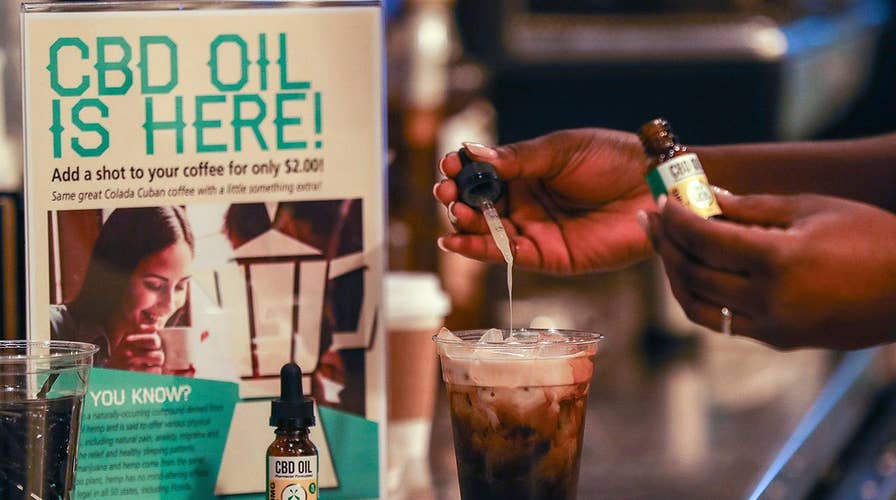White House wants the FDA to explore ways to standardize CBD rules and regulations
Americans spent about $600 million on CBD products last year, a number that is expected to climb into the billions as federal guidelines are synched up with local regulations.
Since he took office, President Trump has taken a largely hands-off approach to marijuana in states where it's legal, earning praise from civil libertarians. But now pot politics are poised to take a big toll on businesses who are selling a marijuana extract that doesn't get you high. It's called CBD, often seen as marijuana's less-controversial cousin. CBD is best described as a health supplement derived from cannabis, but containing no THC - the psychoactive ingredient in pot. In other words, it can give a relaxing effect without the "high" associated with regular marijuana. But the disparity has some lawmakers and regulators wondering how to classify it.
The Farm Bill passed by Congress last year (which took effect in December) specifically makes CBD legal nationwide, but that new law is now creating inconsistencies with local health regulations in a number of states. And some businesses say it's impossible to follow one set of rules without violating another. "All my labels are regulated. All my labels say that is not FDA approved, which that's the legality of CBD oil right now," insists Igor Yakovlev, who runs the Beezy Beez Honey company in New York. But the proper labeling and licensing didn't stop him and a number of other CBD retailers from being raided by city agencies, even after getting the green light from the federal government. "We were informed [of the new regulations] through the news overnight, no letter, no directions," says Dorothy Stepnowska, owner of the Flower People Coffee Shop in New York. "It's like they're treating us like we're nothing."
The White House is now asking the Food and Drug Administration to explore ways to standardize CBD rules and regulations throughout the country, in an effort to avoid confusion, establish standards, and streamline the permitting process. But so far, the Agency hasn't approved it for use in food or dietary supplements, which legal experts say is a direct contradiction of the new law created by the Farm Bill.
Another big concern has been protecting doctors and researchers who are studying medicinal uses for CBD. Psychiatrists are particularly keen on the compound, which they say can be used to safely treat a host of social issues. Dr. Raphael Bernier of the University of Washington says his team is hoping CBD "will ameliorate some of those challenges we see, reduce irritability, and increase social ability." The uncertainty surrounding the legality of both the testing and treating with CBD, however, have had a chilling effect in the research community, and funding has largely dried up as a result.
But the uncertainty isn't stopping the commercial market from exploding. According to the financial services company Cowen, Americans spent at least $600 million on CBD products last year, and that number is expected to climb over the $2 billion mark by the end of 2019, with projected sales reaching some $16 billion by 2025. And business owners say the potential for that kind of growth will keep them in the CBD business for years to come. "Every day is just like a new challenge between this and that," says Yakovlev. "But, when they come out with them, if you follow the proper guidelines, I think everything will be okay and sweet like honey."





